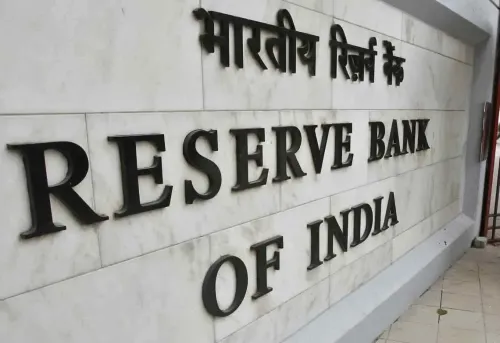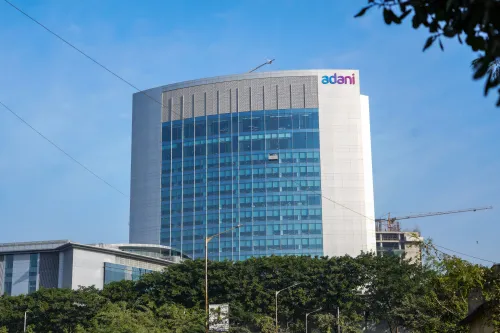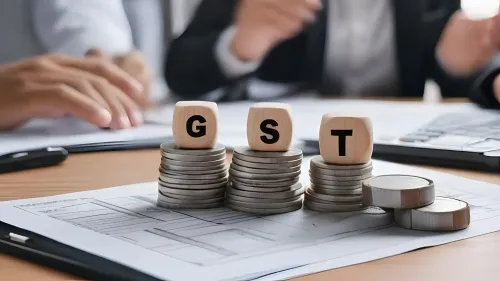Why are Varanasi locals celebrating the GST exemption?

Synopsis
Key Takeaways
- GST exemption brings relief to Varanasi residents.
- Over 370 products have reduced taxes.
- Common goods like cheese and butter are now more affordable.
- Essential medications benefit from GST cuts.
- The initiative aims to boost local businesses.
Varanasi, Sep 22 (NationPress) The recently introduced GST slab exemption by Prime Minister Narendra Modi has officially taken effect this Monday, providing significant relief to the residents of his parliamentary constituency, Varanasi. The locals are joyfully marking this development as a ‘Savings Festival,’ symbolizing a newfound focus on affordability and economic positivity.
From temple priests to restaurant owners and grocery shopkeepers, there is a shared sentiment — this tax relief is a generous gift, especially as it coincides with the onset of Navratri.
“This decision will undoubtedly stimulate business and provide direct advantages to consumers,” stated Sheetala Prasad Upadhyay, a local restaurant proprietor. “Items like cheese, butter, pulses, and rice have become significantly more affordable.”
Vinod Kannaujiya, who owns a general store, shared similar thoughts: “The reduction in GST is a commendable initiative. It’s a boon for the general public and warrants a celebration as a ‘Savings Festival.’”
For Tulsi, a temple priest, the timing of this announcement holds spiritual significance.
“On the inaugural day of Navratri, this news is remarkable. The reduction of GST on natural items used in puja rituals reinforces Sanatan Dharma. I express my gratitude to PM Modi for this,” he remarked in an interview.
Residents like Sunil Upadhyay perceive the change as a festive present.
“Starting from the first day of Navratri, the GST reductions will make daily essentials more accessible. This is a tremendous advantage for the average person.”
In the meantime, India’s revamped Goods and Services Tax framework, termed next-generation GST or “GST Bachat Utsav,” has been set in motion, reducing taxes on approximately 370 products, including essential commodities and lifesaving medications.
Union Finance Minister Nirmala Sitharaman revealed that this overhaul aims to inject around Rs 2 lakh crore into the economy by enhancing consumers' disposable income.
Over 50 items, including UHT milk, khakhras, pre-packaged paneer, and various types of bread, will now fall under a zero-tax category due to the new structure.
Thirty-three essential medications and therapies for conditions like cancer and rare diseases are now GST exempt, while the tax rate on numerous other drugs has been decreased from 12 percent to zero. Moreover, medical devices, such as diagnostic kits and glucometers, now incur only 5 percent GST.
The tax on stationery items for educational and office use, such as erasers, pencils, notebooks, and maps, has been eliminated. Prices for various consumer staples have decreased, including butter, biscuits, condensed milk, namkeen, jams, ketchup, juices, dry fruits, ghee, ice cream, and sausages.
Dry fruits and nuts, such as almonds, cashews, pistachios, and dates, will now be taxed at 5 percent instead of 12 percent.
Cement for housing is now set at 18 percent, reduced from 28 percent. Services like haircuts, salon treatments, yoga classes, gyms, and health clubs will also experience lowered rates.
Additionally, the zero-GST category now encompasses toiletries such as soaps, shampoos, hair oils, face creams, and shaving creams.
GST on kitchen appliances and electronics, including air conditioners, televisions, washing machines, and dishwashers, has been decreased to 18 percent from 28 percent.
The government has integrated cess into the GST base and enforced a 40 percent levy on sin and luxury goods to counterbalance revenue losses.
Tobacco products like cigarettes, bidis, pan masala, gutka, and others are subjected to the highest tax rate, alongside aerated beverages such as Coca-Cola, Pepsi, and Fanta.









